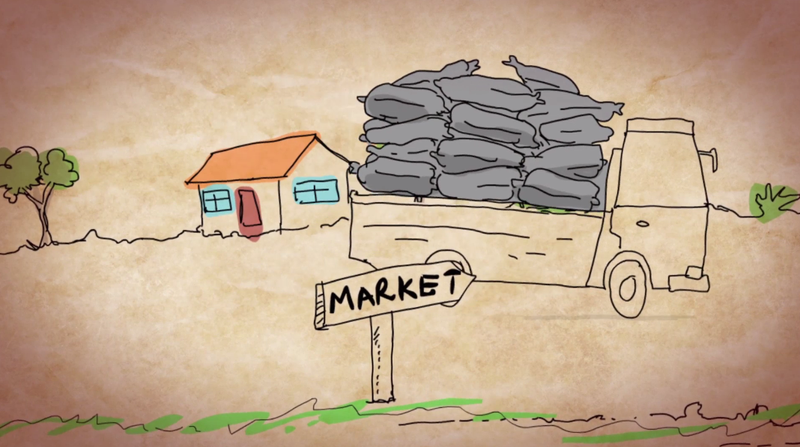Finding market for kales

Markets are important because they help farmers sell and earn money from their kales. As a farmer, you must establish how you will sell your spinach before you begin to plant them.
Four important things to consider when finding markets.
Product
This is what you decide to sell after studying the market, in this case your kales. In deciding to go for kales, think about the following:
- Which other farmers are producing kales?
- Is there a demand for your kales?
- Which kale variety does the market want?
- What quality expectations are there in the marketplace for your kales?
- What costs are associated with marketing your kales?
- What legal requirements are to be met? For instance, can you hawk kales without a permit?
It is important for you to plan production, establish the level of investment needed throughout the season, identify the inputs required and know the estimates of income you will get in order to be efficient and have a successful business.
Price
You need to figure out what price you are going to charge for your kales ie, per bunch.

Remember: You make more if you sell a lot at a lower price than if you sell a little at a high price.
- Will you charge the same price for everyone or based on market and buyers?
- What will you do if a competitor comes along?
- Does it cover your production costs and leave me a profit?
- Are you going to charge different prices for different bunches?
- Can you make a profit?
Find out what the quality expectations by the market are to minimize produce rejection or price changes as well as the costs associated with selling and delivering goods to the market.
Place
You need to plan on where you will sell your kales as well as how you will deliver your kales to your customers or the market.

There are 2 main marketing channels for farmers like yourself to sell your kales:
Informal Markets
These are the easiest forms of markets to access. They include farm gate and road side sales, village markets, rural aggregation points and sale in urban areas, wholesale and retail markets for instance ‘mama mbogas’, schools, small hotels and eateries.
Formal Markets
These are more structured and are suited for commercially oriented farmers to large commercial buyers usually on contracts.
Smallholder farmers can link to a consistent source of income, market information and support services. Such markets include contract farming for export, aggregators, supermarkets, high end green grocers, hotels, processors etc.
Brokers, middlemen and aggregators do play a role in aggregating for formal markets. They tend to know what the market wants and are keen on quality.
Other forms of formal markets include government strategic reserves like National Cereal and Produce Board.
Formal markets demand that farmers comply with strict quality standards, regular volume requirements and fluctuating prices.
Promotion
If no one knows about your product, you can’t expect to sell anything.
You need to think about how you are going to tell people about the benefits of your product or service.
One way of creating awareness about my produce is using social media to advertise. It won’t cost you much or nothing at all.

Online services such as, Mkulima Young, Farm Soko and SokoPepe are good platforms to advertise your product.
You can also talk to brokers and visit potential buyers you have identified.
Some farmers also rely on word of mouth. This is when people tell others about your product or service. This is a good way to promote because people trust the information they get from friends.